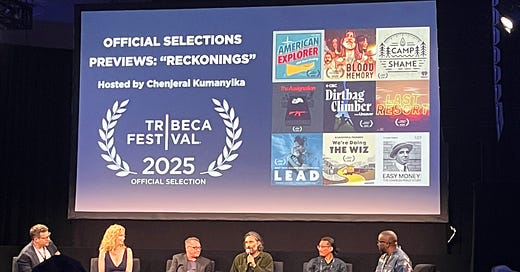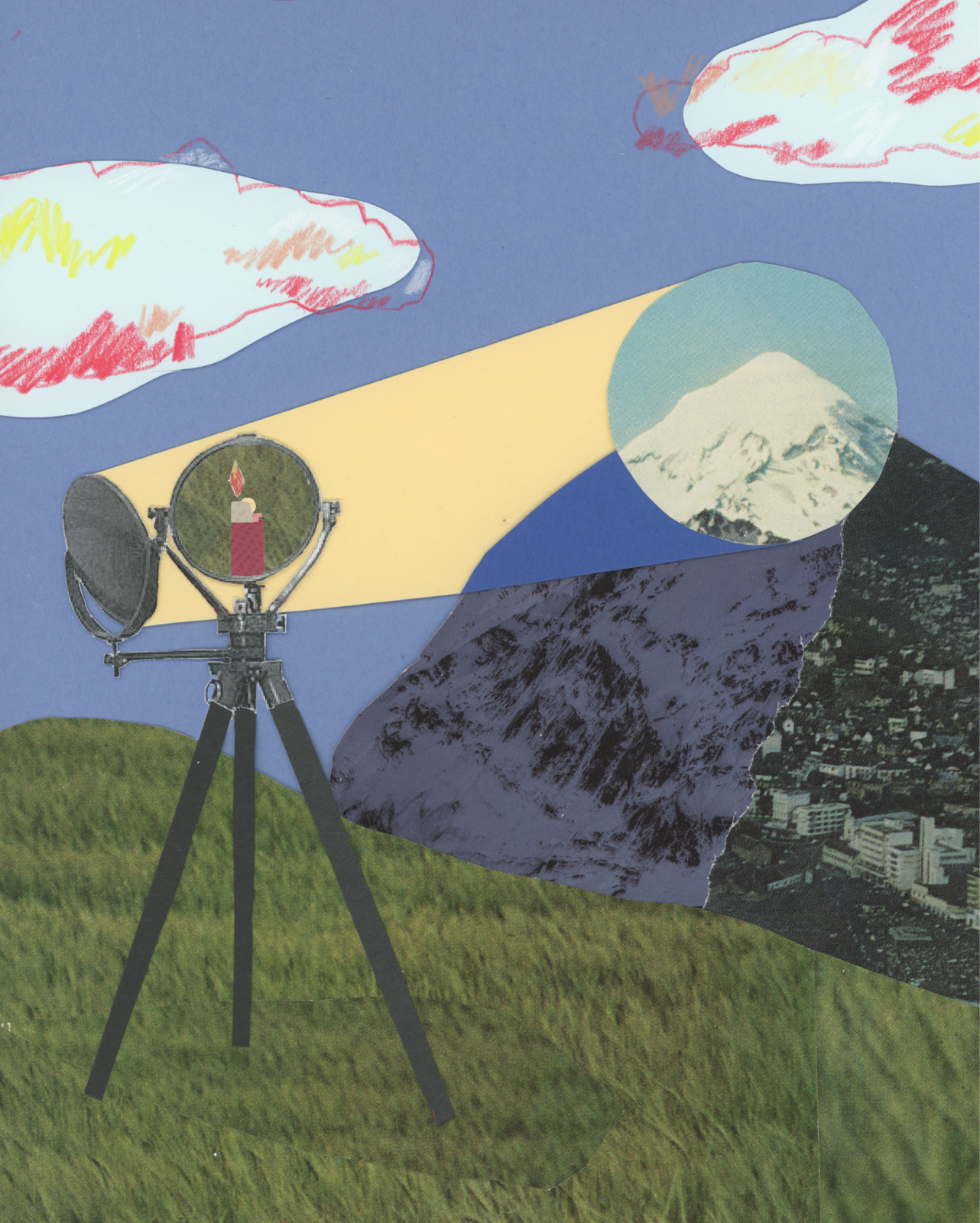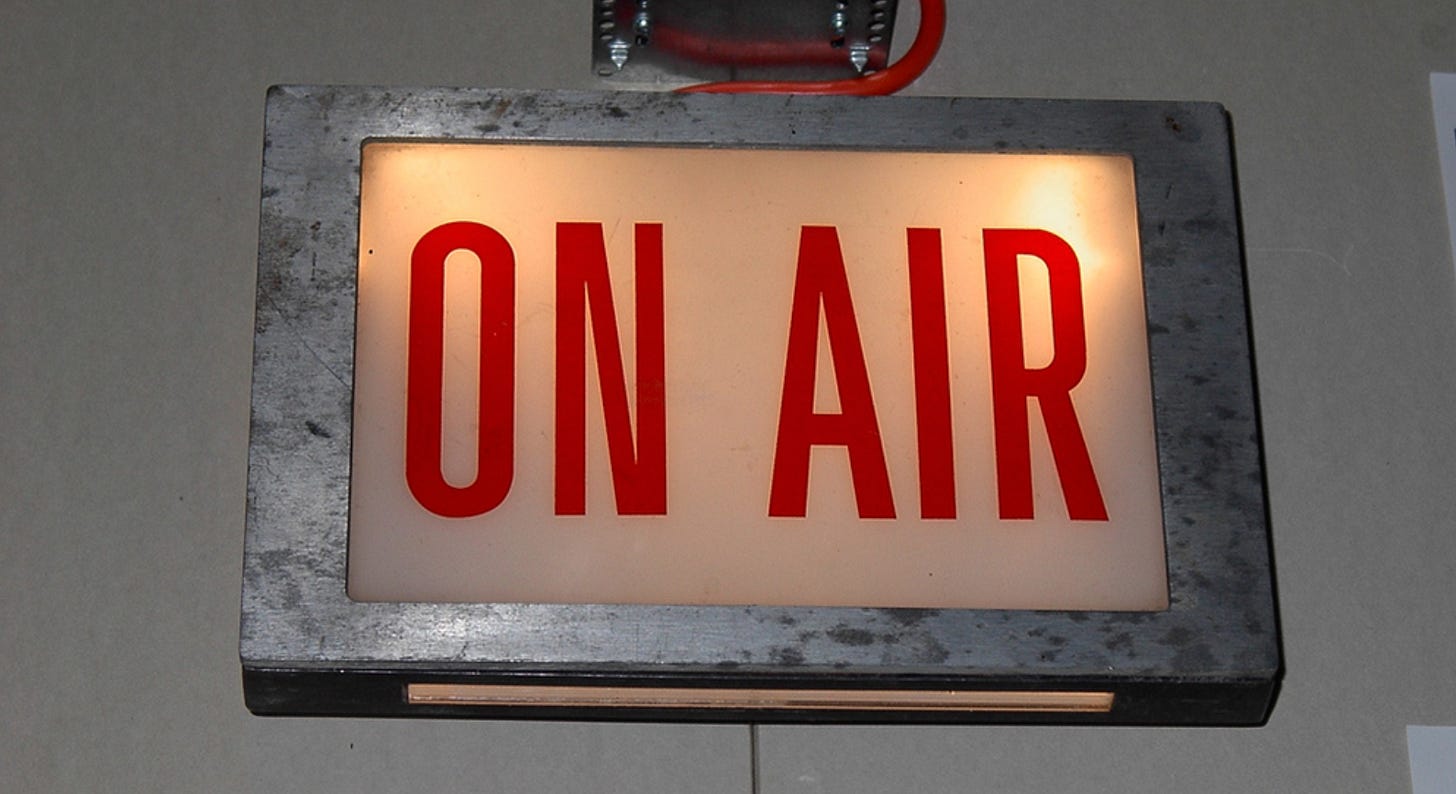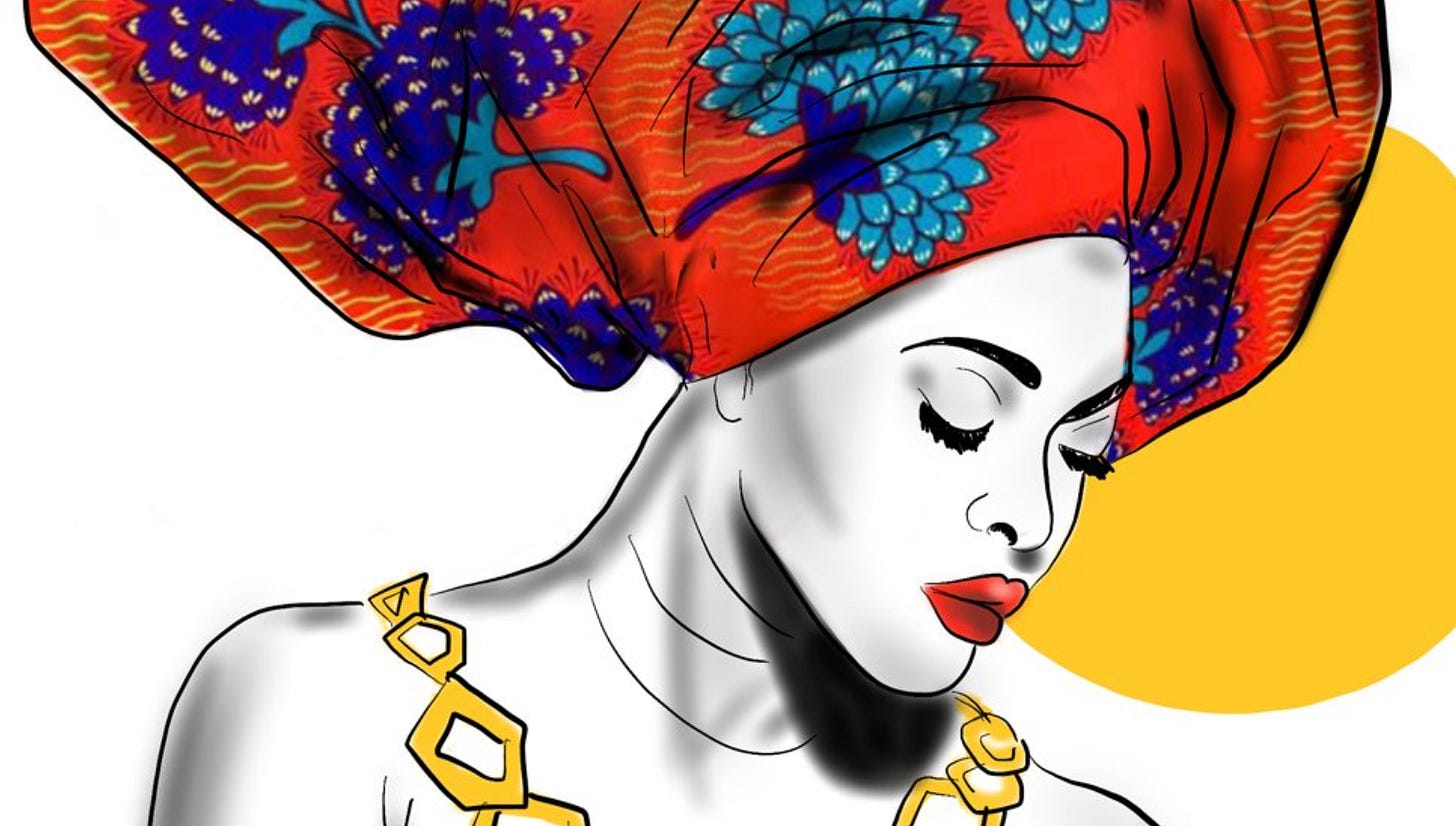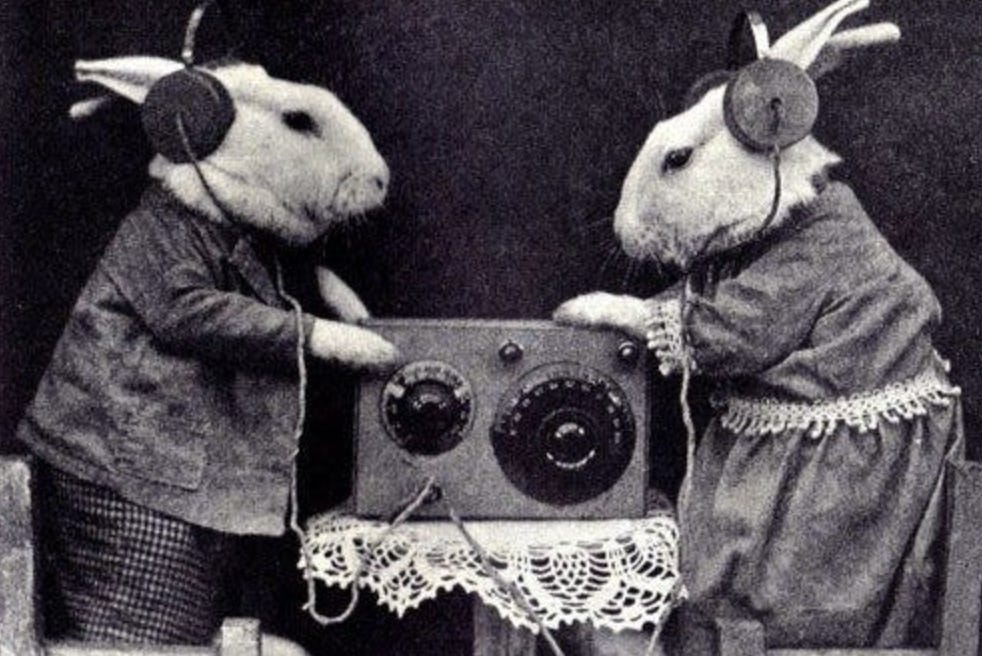Hi there! We hope you’ve had a great week. We’ve been at the Tribeca Festival, where yesterday we had the pleasure of seeing the trailer for Transom’s lead teacher, David Weinberg’s new show, out next year: American Explorer. It’s a story about traveling down the Mississippi River in a canoe, which David has done over the past decade. Here’s a photo of him up on stage receiving his “laurels” as an official Tribeca Selection. (Notable: the host of this event was Chenjerai Kumanyika, a Transom grad, and one of David’s former students at the TTW Catalina Workshop.)
Also excited to share that we have a live show coming up in Woods Hole on June 24, featuring stories told by local scientists. The theme is “Making Waves” and it will be the culmination of a first-of-its-kind workshop to help scientists learn to tell personal, human-centered stories. We’ve teamed up with the incredible story coach Meg Bowles to design the 3-day workshop, and we couldn’t be more excited. We think this moment in time calls for storytellers and scientists to team up and stand together. Transom’s founder, Jay Allison will be hosting the show, and Carla Kihlstedt will be playing music. Tickets are on sale here and going fast — there are only a few left, so get yours soon if you want to join us in Woods Hole and celebrate the incredible scientists in our home community.
What’s new on Transom
Climbing Signal Hill by Liza Yeager and Jackson Roach
Liza Yeager and Jackson Roach were producers with big, weird, ambitious story ideas and nowhere to put them. So they decided to create a platform of their own, and the audio magazine Signal Hill was born. The first issue came out in February and featured a range of audio documentaries from eight different creators. In this essay about the project, Yeager and Roach lay out their mission, discuss where they drew inspiration, and preview a bit about each piece that’s in the first issue.
“These stories are all extremely different from each other! And that was the point. In podcasting and radio, we’ve been taught that in order to make something successful, it has to be consistent and predictable: there should be a host people get familiar with, and the same type of story showing up in the feed week after week. But that isn’t how other mediums work. Actually, one of our favorite things about print magazines is the variety: there’s room for small stuff, big stuff; heavy stuff and light stuff; even things like poems and cartoons.”
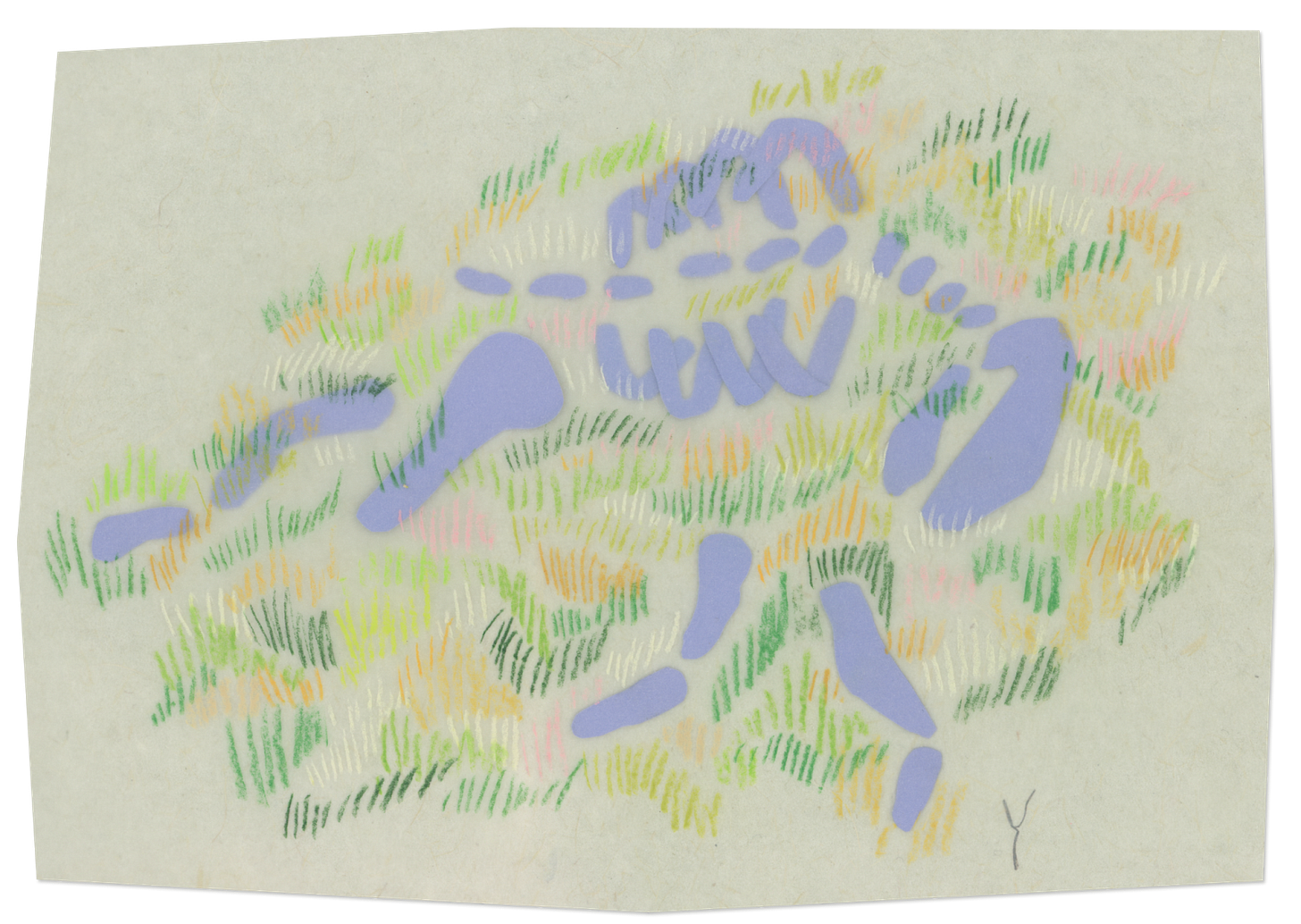
More to explore on Transom.org:
Listen to the latest episode of Sound School from Rob Rosenthal, in which he pleads with podcasters to stop using the same, tired approach to episode previews and recaps.
Tip of the week: evoking a sense of place
In a 2011 piece for Transom, Dan Grech wrote that making local radio was more fun than making national radio, but that it was also a lot harder. Grech said this is because local radio needs to evoke a sense of place in a way that national radio doesn’t always have to. And in audio storytelling, “place” isn’t just the environment in which things are unfolding, it’s more than that. In order to evoke a strong sense of place, Grech says to think about it as a theme rather than a geography or setting.
“By “place,” what listeners are asking for are stories that evoke the shared lived experience of a region or a people. Rather than think about place as geography… we think about place as a set of themes.
I know, I know: This seems unnecessarily abstract. But local radio producers, myself included, fall into the habit of thinking about place as simply the setting for a story. A book author comes to town and we do a local story. But what connection does the book or author have to our community? We often don’t even ask that question.
Once you absorb this habit of thinking about place as a set of themes, it will have real, everyday implications for how you report, edit and produce local radio stories.”
From the archives
I Am My Target Audience by Leila Day
When producers Leila Day and Hana Baba pitched the idea for their podcast The Stoop, the feedback they often received was about whether or not it would have a broad enough appeal. The pair wanted to make a show comparing their experiences living in the U.S. — Baba is African and Day is African American. They had strong story ideas and topics they wanted to cover, and eventually got funding from NPR for their pilot. But questions about who the audience would be lingered. In this piece from 2017, Leila Day writes about what she learned while getting The Stoop off the ground, and gives advice to people who are facing similar challenges.
“I was noticing there was this default acceptance for other more mainstream podcasts, but when creating a podcast like ours, dealing with stories about blackness, it already seemed we would need to justify and defend why we were even thinking about doing our thing.
I spent over a year overthinking this and trying to phrase my responses in the right way, gracefully, without exploding… Now my response is simply this:
We are different because blackness is not a monolith. I’d love for you to listen, but if it’s not your thing, then I hear you.”
This week’s community question: In terms of the way Grech described it, what kind of ‘place’ would you like to spend your summer in? Sound off in the comments with descriptions!
